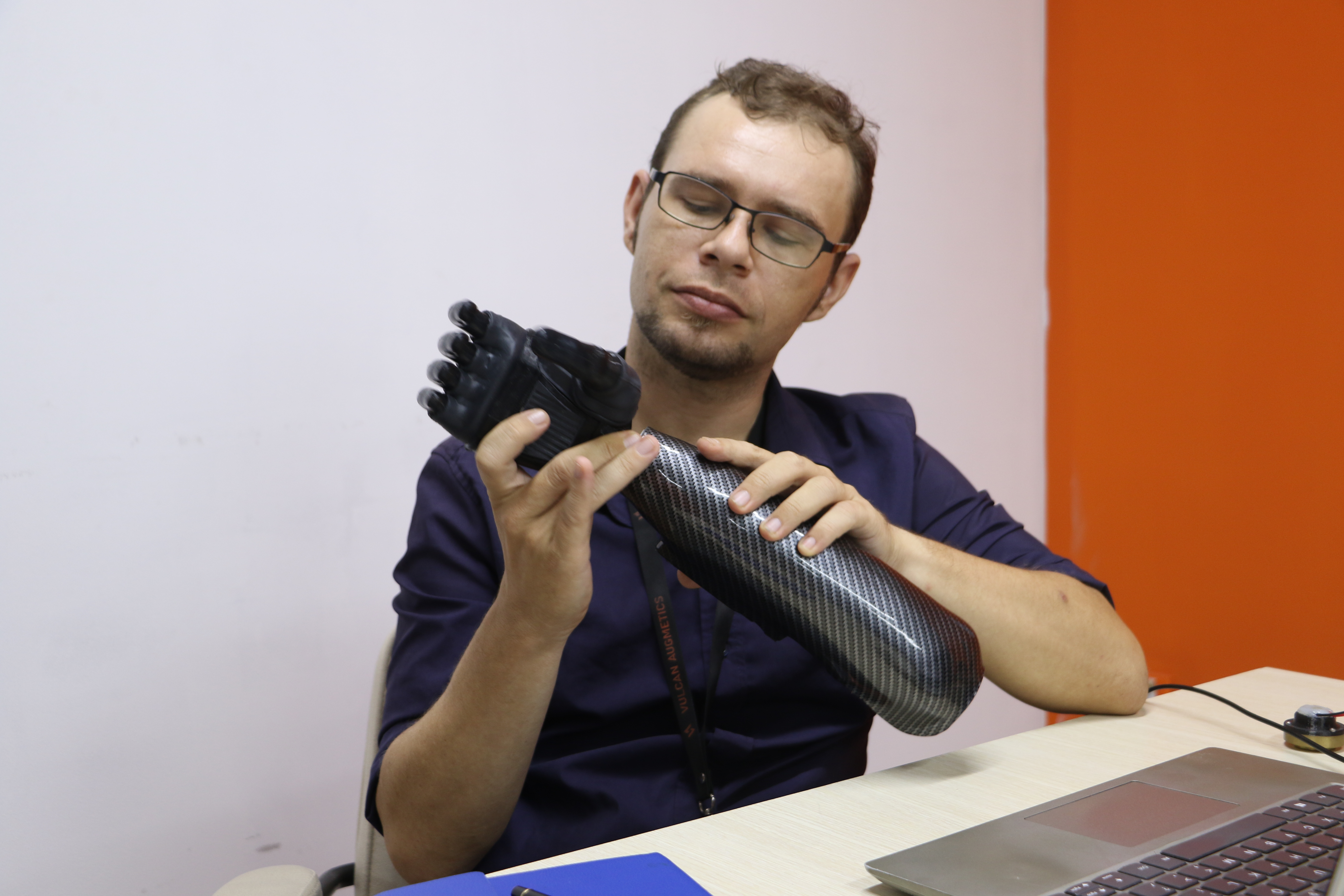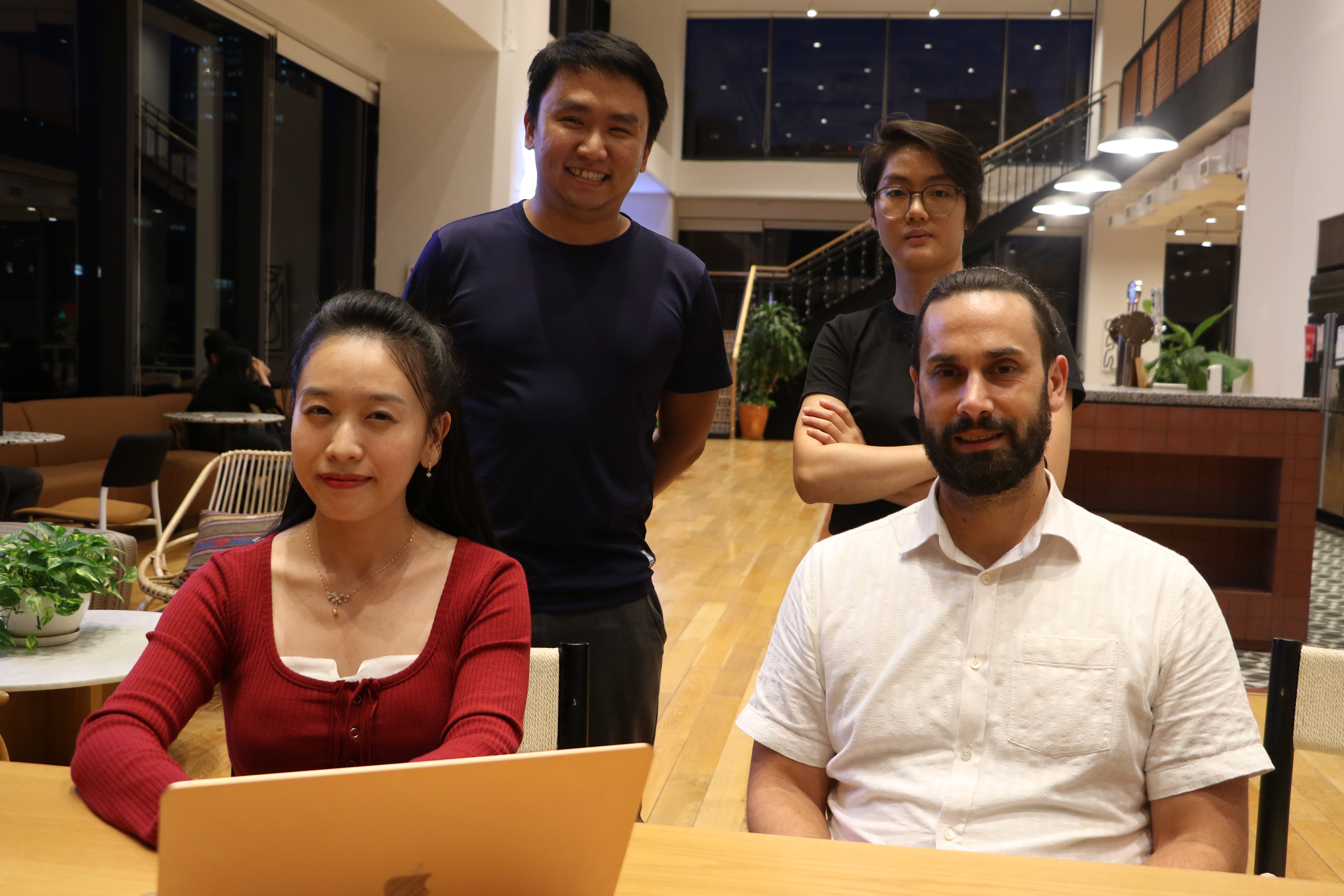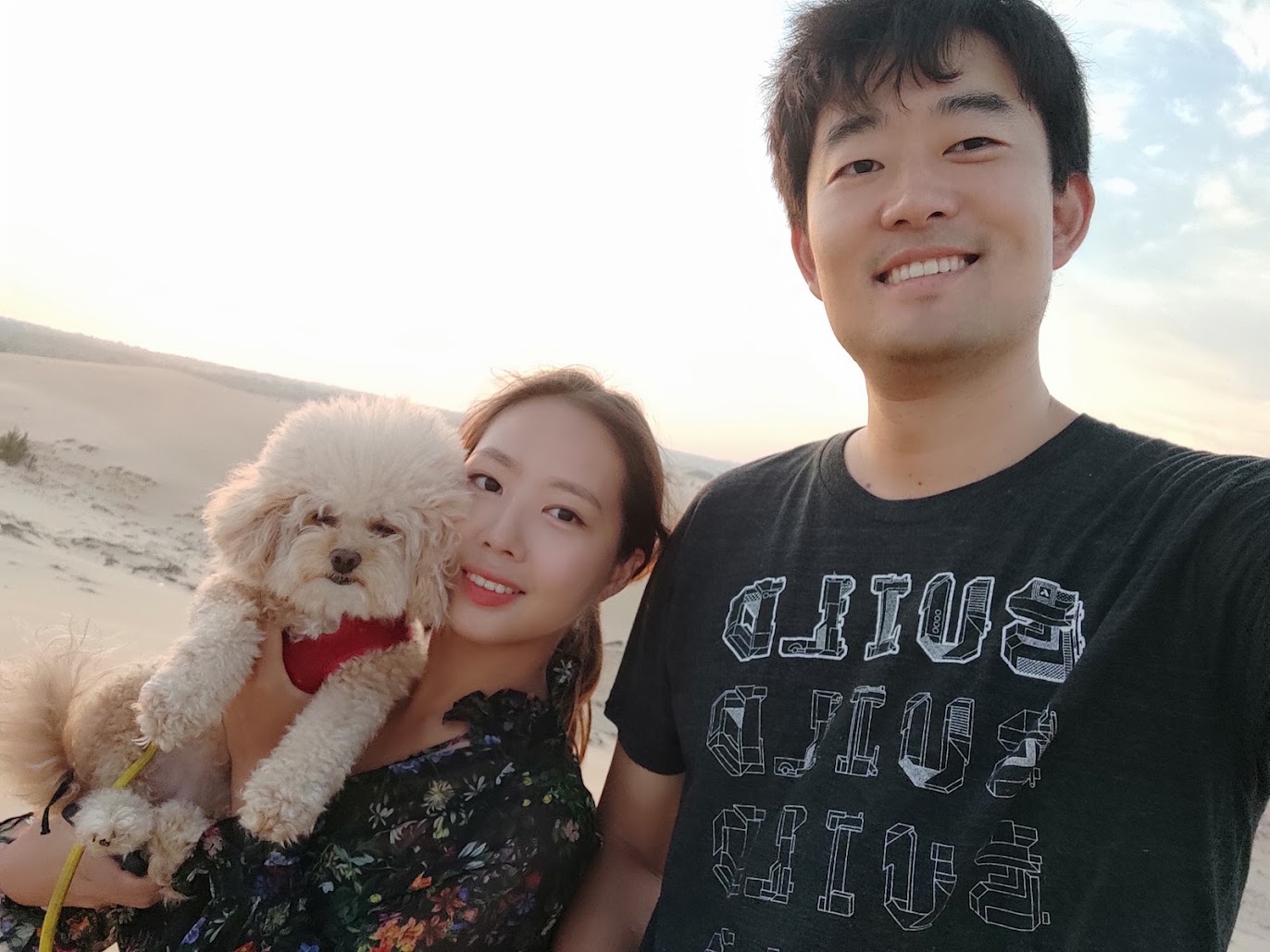Foreign business founders keen on Vietnam’s development potential
In addition to the country’s economic potential, many foreign business owners say their love for Vietnam is what keeps them here “paying it forward” by improving the country’s national brand and human resource training.
Holiday turned home
Rafael Masters landed in Vietnam 14 years ago. A recent graduate, the British national had planned to travel the world and experience different cultures.
To finance such a trip, he planned to work as an English teacher.
“I intended to teach for a year and then return home. What actually happened was that I began to fall in love with the culture, the country, and even teaching in Vietnam.
“It’s an incredibly exciting feeling to see children of all ages being given educational tools and then developing and building themselves with those tools,” he said.
 |
| Rafael Masters, founder of Vulcan Augmetics, a start-up that makes electronic prosthetics for the disabled. Photo: Binh Minh / Tuoi Tre |
Some of Masters’ first students in Vietnam are now doctors, engineers, and biochemists working in a variety of countries around the world.
Seeing their success is part of what inspired him to found Vulcan Augmetics – a start-up that manufactures electronic prosthetic arms for the disabled people.
Rafael founded Vulcan Augmetics in 2017. The following year, his company was officially licensed and he partnered with Trinh Khanh Ha – a woman who has devoted herself to making a better life for people with disabilities in Vietnam.
Vinnie Lauria is another foreign business owner whose love for Vietnam has motivated him to plant roots here.
Lauria is the co-founder of venture capital firm Golden Gate Ventures.
He began his relationship with Vietnam more than a decade ago when he and his new wife decided to spend a 13-month honeymoon traveling across Asia.
“I did not plan to start a venture fund and move to Vietnam, but then I had a great experience here.
“We explored the plains, took a bus to the north, and hiked. Most of the trip was dedicated to cultural experiences, culinary adventures, and meeting Vietnamese people,” he said.
It was during Lauria’s travels that he met his now-business partner Jeffrey Paine.
The two decided to launch Golden Gate Ventures out of Singapore and make their homes in Southeast Asia.
“I rushed to Singapore when I realized there was a business opportunity there. Now I feel the same when I look at the Vietnamese market,” Lauria said.
 |
| Vinnie Lauria and his 9X generation staffs at the Golden Gate Ventures office in Ho Chi Minh City. Photo: Binh Minh / Tuoi Tre |
In 2019, Lauria opened a Golden Gate Ventures fund in Vietnam, but the COVID-19 pandemic derailed his plans.
Rather than commute between Singapore and Vietnam, he opted to permanently move his family to the latter.
Just like Masters and Lauria, a short visit to Vietnam is what inspired Korean-American businessman Charles Lee to launch a company in the Southeast Asian country.
Lee is the founder of CoderSchool, an educational institution that teaches coding, artificial intelligence, and machine learning based in Ho Chi Minh City.
In 2015, after leaving his startup in Silicon Valley, Lee felt a need to focus on the future of global technology.
This focus brought him to Vietnam, a country, he said, is attractive due to its speed and rate of Internet and technology adoption.
After arriving in Vietnam in 2015, Lee’s first job in the country was teaching programming online for a friend’s company.
That experience opened his eyes to how interested Vietnamese people were in programming, and how few resources were available to them to learn how to do it.
“People started telling me to teach programming. I did some research online but could not find any places that offered programming courses,” Lee recalled.
Since 2015, Lee has launched CoderSchool and expanded its offerings to include artificial intelligence and machine learning.
Introducing the world to Vietnam
For foreign entrepreneurs like Masters, Vinnie, and Charles, the love for Vietnam extends beyond economic opportunities and potential.
They all have long-term visions and high ambitions for Vietnam to make its mark on the global business community.
At Vulcan Augmetics, Masters and his team are working to create value for people with disabilities in Vietnam.
According to Masters, there are approximately seven to 13 million people in Vietnam who are disabled because of workplace and daily life accidents.
“When a family has one member who is unable to care for themselves, it means that at least one or two other people are unable to work because they must care for their disabled family member.
“This has an impact on their ability to sustain themselves financially,” he explained.
 |
| Charles Lee chose to live permanently in Vietnam with his wife and a Poodle named Chuon Chuon (Dragonfly). Photo: Courtesy of Charles Lee |
Vulcan Augmetics’s work has had such an impact on those it helps that some of these customers have even become employees of the company or served as brand ambassadors.
Additionally, the company works hard to keep all its products as made-in-Vietnam as possible.
“Except for the circuit board, which is currently manufactured in China, the entire [prosthetic] arm [we produce], including its design and technology, is made in Vietnam by Vietnamese people. That is what makes me the proudest,” Masters shared.
Aside from continuing to expand his customer base by partnering with companies from Singapore, Malaysia, and India, Masters’ main goal is to use Vulcan Augmetics as a means to improve Vietnam’s global reputation.
“Although the company was founded by a foreigner, Vulcan is still a Vietnamese company, located in Vietnam, and uses products made by Vietnamese people.
“As Vulcan products go global, I want to build the brand of Vietnamese engineers who are the driving force behind all of our technology and innovation,” he explained.
According to Masters, Vietnam is where you can find farmers who want to fly, and they will build helicopters right in their fields.
“Those are the assets on which we can build a brand and train a new generation of Vietnamese engineers to create useful medical equipment products for the community and, eventually, the world,” he explained.
Similarly, Lee emphasized that his vision for Vietnam is to create a generation of qualified programmers to join large companies all over the world.
“What makes Silicon Valley so successful is that when former employees leave these companies, they continue to contribute to the global growth of technology and to any company for which they work. I also hope that one day, talents from the global technology industry will become a part of Vietnam’s human resources,” he said.
Vietnamese people are “key” to success
Both Lauria and Lee were impressed by the Vietnamese people’s growing desire to learn and invest in education.
“The most interesting and surprising thing about Vietnam is that even during the time when the COVID-19 pandemic caused a lot of upheavals, people still wanted to focus on learning and developing themselves. They contacted us and asked about the courses. That was when we had more motivation to develop online teaching programs,” said Lee, adding that his students come from a variety of fields such as marketing, finance and even art.
“Vietnamese people and its market tend to be open, accepting and willing to try new things rather than rejecting and saying that this is not their usual way of doing things. This promotes the emergence of startup ideas,” he explained.
Meanwhile, according to Masters, Vietnamese people strive to achieve incredible goals.
“In Vietnam, if we find the right team, everyone will definitely get the job done. We have an employee who is doing a PhD in machine learning and robotics at Princeton University. He is also Vietnamese and very smart. We will definitely wait for him to finish his studies and bring him back to Vulcan,” said he.
Like us on Facebook or follow us on Twitter to get the latest news about Vietnam!
The post Foreign business founders keen on Vietnam’s development potential appeared first on Vietexplorer.com.
View more from VietExplorer:
Online sales boom as Tet approachesInsurance market sees growth despite COVID-19
Stunning Lang Song Church in Binh Dinh province
Flower garden in the clouds
Impressive landscapes in Vietnam: Longest beach road, largest lagoon, biggest island and more
Fostering the Vietnamese traditional brand of lacquer art
The smorgasbord of sauces in Vietnamese cuisine
Festival honours Ao Dai, cuisine of Hue ancient imperial city
Hanoi tourism earns $13 million in first 3 days of 2021
Sa Pa resort welcomes 65,000 visitors during New Year holiday
Ninh Binh strives to host 7 million visitors in 2021
Vietnam to host first international boxing tournament
Fantastic fans
A closer look at telemarketing in Vietnam
2020 successful for defence external affairs
Quang Ninh serves over 140,000 tourists in first two days of 2021
Construction of Long Thanh airport to begin on January 5
Vietnam the world’s next growth market: SeekingAlpha
Kien Giang ornamental trees enter Tet season
Calendar distribution ceremony enacted in Thua Thien-Hue
Comments
Post a Comment